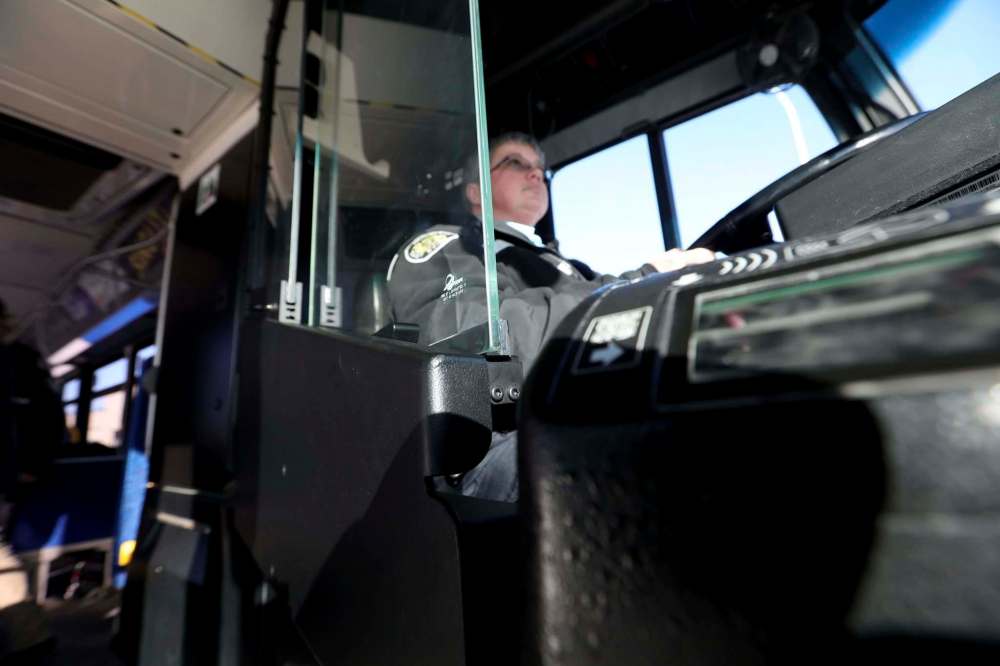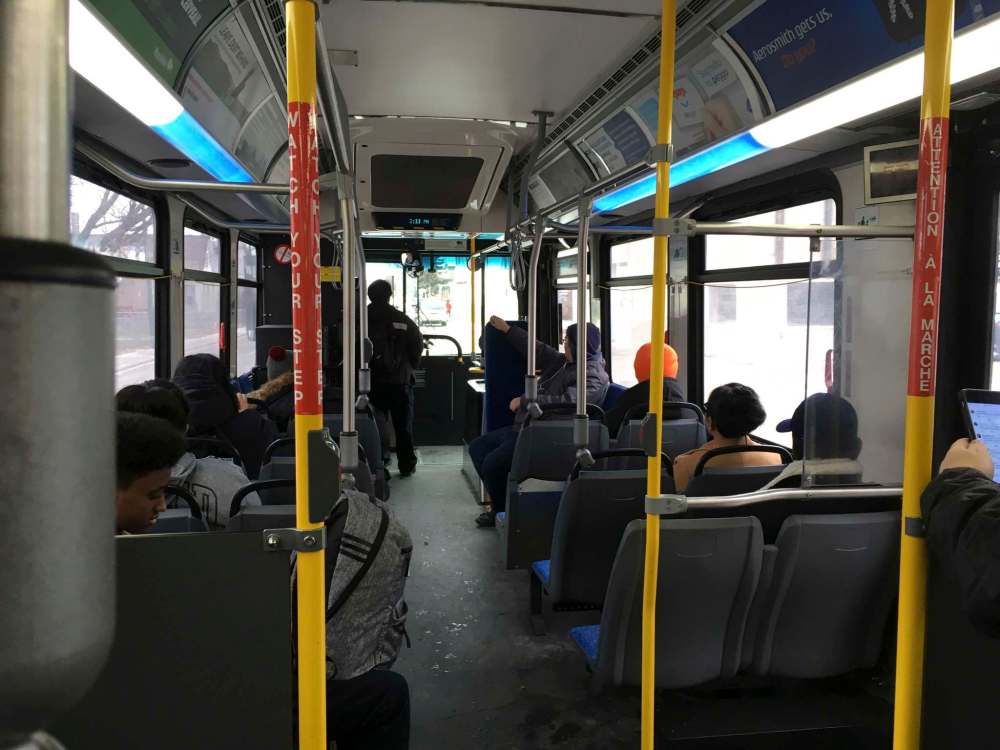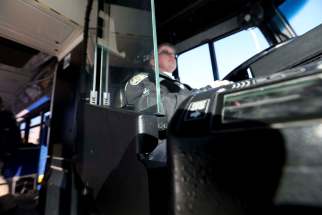City must extend training to all transit drivers
Read this article for free:
or
Already have an account? Log in here »
To continue reading, please subscribe:
Monthly Digital Subscription
$0 for the first 4 weeks*
- Enjoy unlimited reading on winnipegfreepress.com
- Read the E-Edition, our digital replica newspaper
- Access News Break, our award-winning app
- Play interactive puzzles
*No charge for 4 weeks then price increases to the regular rate of $19.00 plus GST every four weeks. Offer available to new and qualified returning subscribers only. Cancel any time.
Monthly Digital Subscription
$4.75/week*
- Enjoy unlimited reading on winnipegfreepress.com
- Read the E-Edition, our digital replica newspaper
- Access News Break, our award-winning app
- Play interactive puzzles
*Billed as $19 plus GST every four weeks. Cancel any time.
To continue reading, please subscribe:
Add Free Press access to your Brandon Sun subscription for only an additional
$1 for the first 4 weeks*
*Your next subscription payment will increase by $1.00 and you will be charged $16.99 plus GST for four weeks. After four weeks, your payment will increase to $23.99 plus GST every four weeks.
Read unlimited articles for free today:
or
Already have an account? Log in here »
Hey there, time traveller!
This article was published 18/12/2018 (2550 days ago), so information in it may no longer be current.
Put yourself in the driver’s seat of a city bus. A boarding passenger appears agitated; you feel vulnerable, suddenly reminded the city has yet to decide on whether to install safety shields on all buses. As the passenger stares at you with wild eyes, you wonder if he is experiencing a psychotic break. How do you react?
The Main Street Project knows how to react. The Winnipeg institution has a 45-year history of helping people who suffer from homelessness, addictions and mental illnesses. This hard-earned, street-level knowledge has helped the institution’s professionals develop a unique half-day training session for bus drivers.
The question now is whether the city will pay $250,000 to extend the training program to all its transit operators. The answer seems like a no-brainer: yes, the city should pay for the sessions.

The training has received raves from the relatively few bus drivers who have taken it, but the city currently pays only to give the course to new drivers as part of their six-week training.
The drivers’ union says transit management has indicated it can’t afford to book all operators to take the course, however, the city’s Transit Advisory Committee agreed on Monday to recommend the course be extended to all drivers. This committee’s recommendation now moves to the public works committee, which meets next on Jan. 8.
As well as protecting city drivers, a decision to supply the course to all drivers would have the added benefit of a goodwill gesture in the tense relationship between the drivers’ union and the city. The city recently rejected union proposals for safety measures such as the creation of a special transit police and the installation of safety shields on all buses. The union says the frustration level among drivers has reached the point where they could strike when their collective agreement expires in January.
The importance of driver safety is heightened by the growing scourge of methamphetamine. Other professions on the front lines have instituted strategies to cope with the unpredictable violence of people in the throes of meth psychosis. For instance, police depend on backup and a variety of weapons, and hospital staff rely on increased security and a crisis-alert plan which calls on colleagues to rush to help each other.
Bus drivers, however, are alone, unarmed and prohibited by their employer’s rules from physically confronting passengers. They are no doubt aware that the passenger accused of killing their colleague, driver Irvine Jubal Fraser, aboard a bus on Feb. 14, 2017, is believed to have been high on meth.

In the absence of safety precautions to protect drivers, the Main Street Project program seems to offer practical help. Their training includes how to identify various psychoses, when and how to engage with these passengers and how to de-escalate or avoid confrontations.
If the public works committee has any doubts about whether the city can afford the training, it’s helpful context to remember that, at Mayor Brian Bowman’s insistence, city hall is providing half-day training to front-line civic employees on Indigenous issues, reconciliation and residential schools.
More than 7,900 civic employees out of a total of 10,450 have received that training so far.
Understanding Indigenous issues is crucial, but so is learning how to react when your job includes face-to-face encounters with potentially violent transit passengers.
The city has a duty to ensure a safe workplace for its employees. This includes employees whose workplace is behind the steering wheels of city buses.








